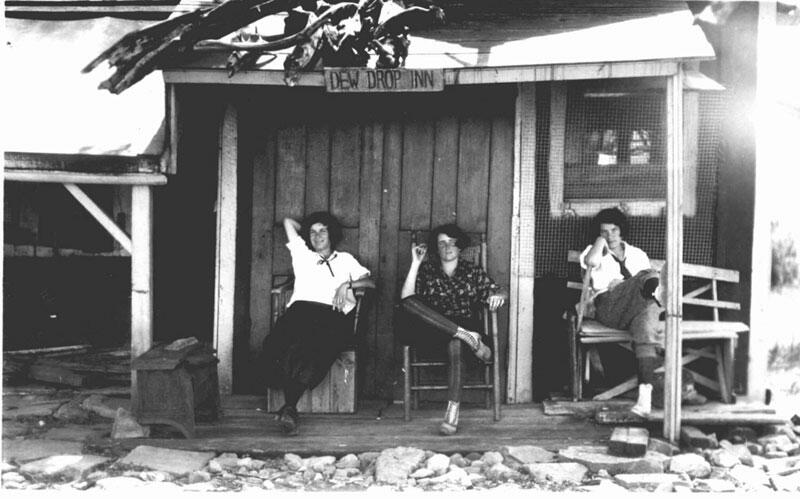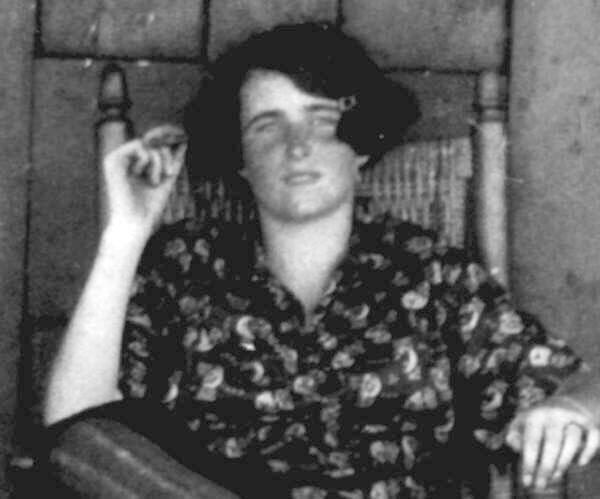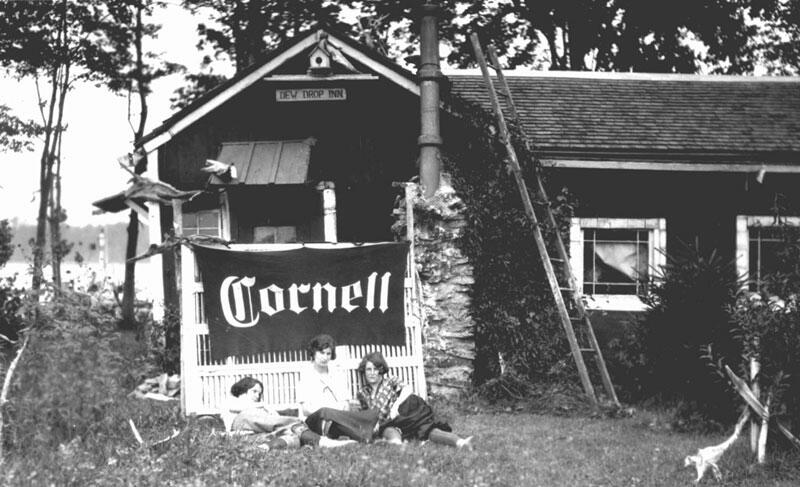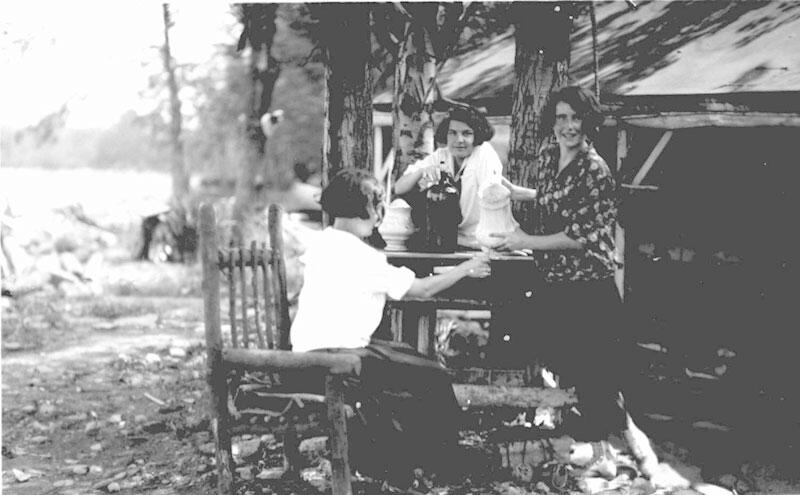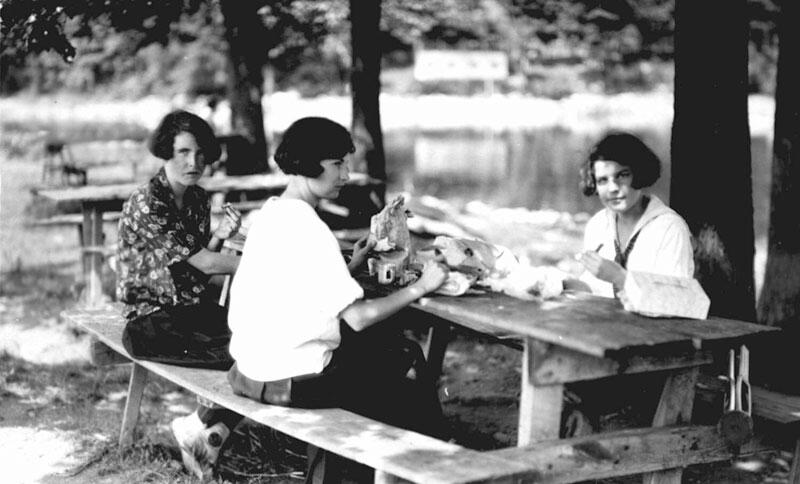by Hans DePold, town historian
(Published in the Bolton Community News, December 2006)
In reviewing early pictures from several sources I noticed that several Bolton historical postcards from about 1920 had three figures in them, sometimes far in the distance. Then I came across a few more in an envelope with Frank Grimason's name on it including one called "the Tea Party" and realized that they, too, had the same three women in them. I realized even the clothing was the same and several of the pictures were probably taken on the same day in the Bolton Notch and Bolton Lake areas. Several of the others were similar but taken in the winter. These three young women must have posed in half the known scenic postcards made in Bolton. Two of the postcards show a Bolton Lake house with a small sign saying, "Dew Drop Inn."
In the Victorian period of the late 1800s and early 1900s it was fashionable to have inns with names that were puns. A common name for a new inn in 1900, for instance, was "Nowhere Inn Particular." Two of the Bolton postcards depicted the inn on Bolton Lake as the "Dew Drop Inn," a Victorian pun meaning "do drop in."
The census of 1900 reveals that about 75 percent of Bolton's population had pulled up stakes and moved west. The west was tamed and traveling circuses were popularizing cowboy and Indian shows. The staff running the inns during this period frequently called themselves Indians. Inns were for rest and relaxation. Route 44 (named in 1922) was then called the Boston Turnpike, the main road between Hartford and Boston. It was in 1913 that the Norwich and Boston Turnpikes first met in Bolton Notch and Route 6 was established as a national highway replacing the Norwich Turnpike.
To continue this history mystery, notice exhibit 1 has the three ladies on the porch of the Dew Drop Inn. The lady in the center is believed to be Anna, who later became Anna Grimason and the executive secretary to Howell Cheney of the Cheney Silk Mills. Anna is currently 102 years old. If you look closely at the photo, it becomes clear that Anna is holding a cigar in her right hand. The other two ladies are striking a pose in their pantaloons and Dutch-boy hairdos. The three frequently walked from where they lived in Manchester to Bolton.
They have an air of independence and rebellion about them, especially considering the repressed period they had lived through. In 1872 Susan B. Anthony had been arrested and stood trial in Rochester, New York, for attempting to vote in the presidential election. In 1878 a Woman Suffrage Amendment was introduced in the United States Congress. The wording was unchanged 41 years later in 1919, when the amendment finally passed both houses. The Nineteenth Amendment was ratified by the states on August 26, 1920.
During that period a woman with a cigar was saying that she was courageous, rebellious, and in step with the times. I believe this picture was taken in the early 20s, when women's suffrage was just won and prohibition had just begun.
Editor's Note: After this article ran in the Community News, I received an e-mail from Frank Grimason with some corrections:
"Hi, my name is Frank Grimason. I gave several post cards to a gal from Bolton that I met at Crestfield. Long story short my great uncle John Knoll...he should be credited...was an avid photographer from Manchester in the early 1900s. The Manchester Historical Society is very familar with his work. This e-mail is in reference to the Dew Drop Inn postcard...no foul no harm...but my mother Anna is on the far left, white jumper no cigar. She never smoked, chewed, sniffed or otherwise used tobacco. The gal with the cigar is Mildred England and my mom said she got sick on the cigar. On the far right is Ester Sturgeon...all from Manchester. The photo was taken in 1919. My mother was a freshman, or freshwoman as they would say in these days, in high school. She claims that is not a Dutch boy haircut but can't remember what it was called. If you need any more useless info I'll be glad to help."
(Click on any photo to see a larger image.)
